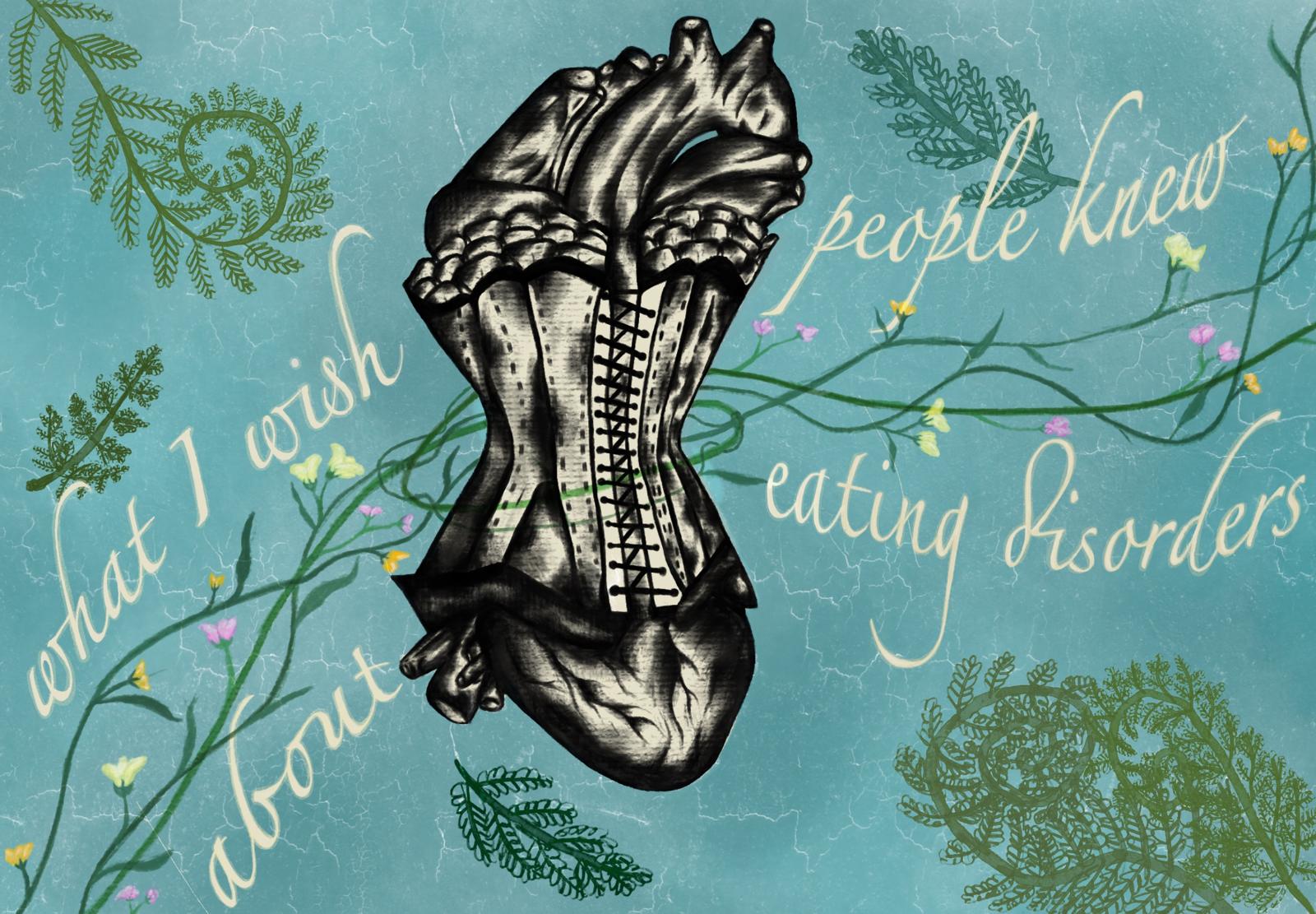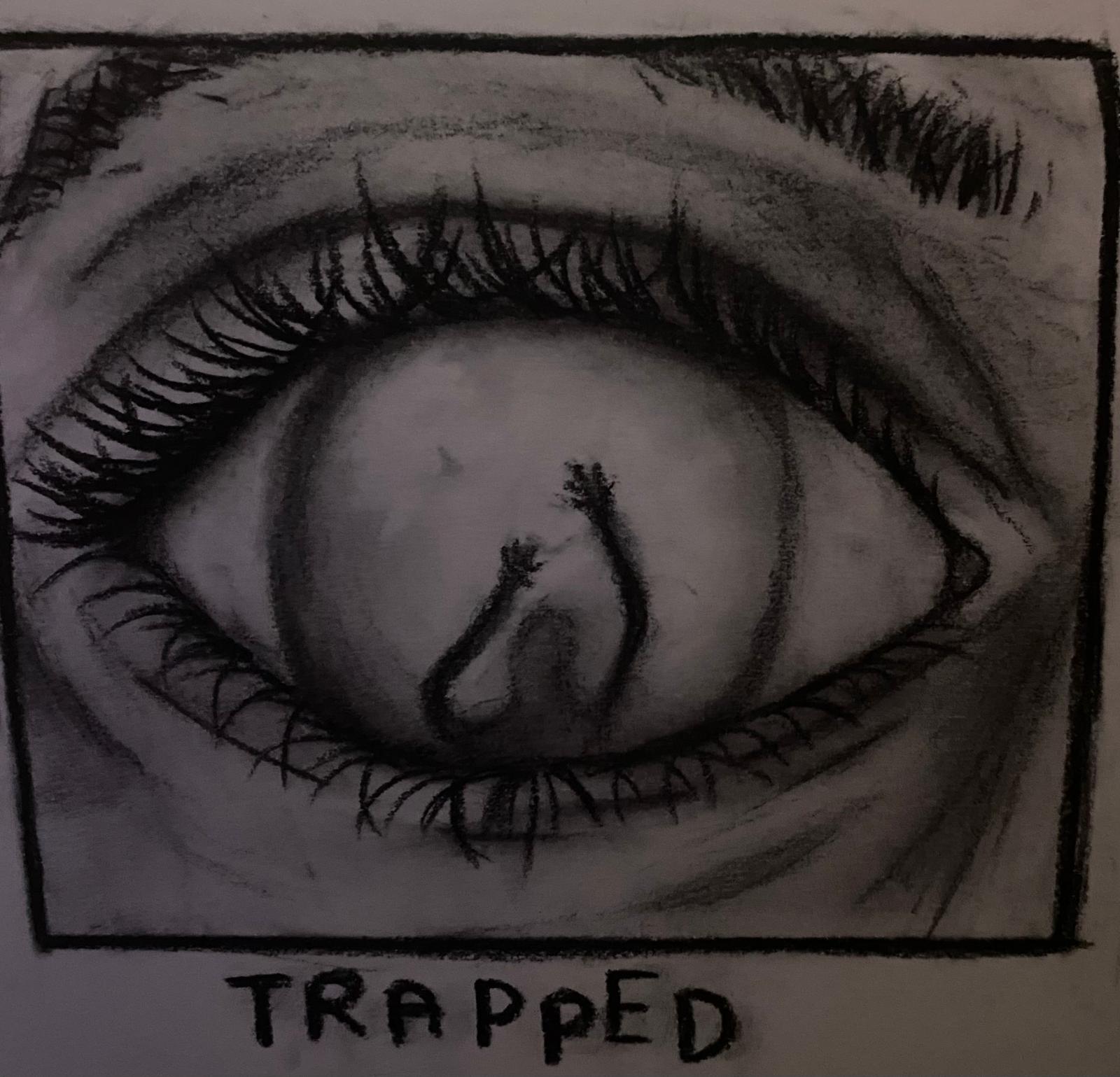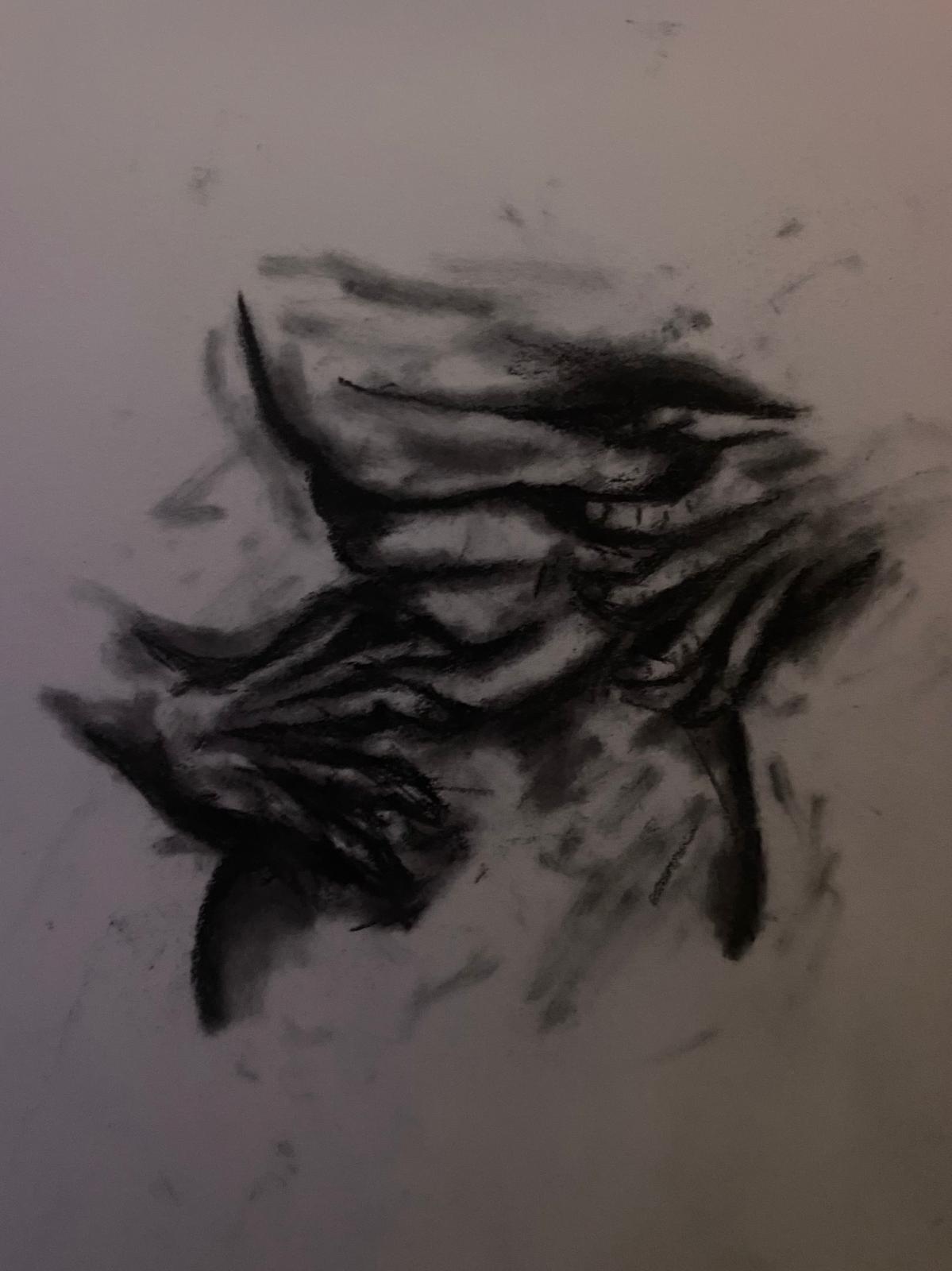What I wish people knew about eating disorders
There are many different types of eating disorders so I will preface this blog post by mentioning that I will be using my own lived experience of having anorexia and difficulties with purging. Please keep that in mind whilst reading this blog and be cautious that there will be some difficult topics covered.
My story
Back in 2021, I was diagnosed with anorexia. A diagnosis that changed my life. Over the years, I’ve realised how little knowledge there is around eating disorders and I am so tired of it. Now I’m not claiming to be an expert on the subject, but I have battled it for the past four years and society’s perception of what an eating disorder is, is very different to the reality of it. The purpose of this blog is not to make you feel guilty for that, it’s to educate you. Whoever you are, I hope that reading this means you’re able to be more mindful in the future of the things you say, the actions you make and overall, the ways that you think.
I hope that by knowing this you’re able to be mindful of the things you say, do, or the ways you think about eating disorders.

It is not a choice
Eating disorders are a vile illness. They will take everything from you, even your life, yet there seems to be an idea that it’s a choice. That it’s a choice to slowly starve your brain and body of nourishment and enjoyment. That each and every day you are waking up and choosing to live a life in constant torment. I think when it’s phrased like that, you can hear how stupid that is. If you were to ask someone with a healthy brain, would you like to live a life enthralled by calories, numbers, restriction, fear, pain? (the list goes on), they would immediately say no. So why is it that for someone whose brain is unwell, they’re choosing it?
It’s sad to admit that for so long, even I believed I was choosing it. It was my brain, I was the one who controlled my thoughts. I’d always had a complicated relationship with food and my body, so I decided I would go on a diet, and I wouldn’t stop until I was satisfied. That’s the trap though with anorexia, you’ll never be satisfied. Once your brain reaches a certain level of starvation, the anatomy of your brain will adapt to suit this illness. Suddenly, my life was in anorexia’s hands. As days went by, it took more and more from me, until all that was left in my brain was the harsh voice of anorexia beating down on me.
Everyday I felt such immense guilt and shame, and often times I still do. Even I’m still trying to remember, I did not choose it. Nobody ever does.
It is more than ‘just a diet’
I know this may seem contradicting considering I’ve just mentioned about how initially mine started as a diet, but let me explain. Eating disorders can arise for a variety of reasons – trauma, self loathing, a desire for control, a diet. None of these things are what keep you trapped in the grasp of an eating disorder. Slowly, whatever that ‘starting reason’ may be, it gets lost in the deceptive means of anorexia.
I reflect back on my battle and I see that during the peak of it, the thoughts I’d had around my body to start with, weren’t so much there anymore. Instead of striving to be a thinner, healthier, more confident version of myself, I was striving to be a smaller, weaker, poorlier version of myself. So frail that the consequences didn’t matter to my brain. Every day, I needed control. Over what? I still couldn’t tell you. Every single day, I needed to punish myself, prove to myself that I wasn’t worthy. Because despite all the weight I’d lost, it wasn’t enough. I was even more insecure, wearing baggy clothes and feeling repulsed by myself in the mirror, ashamed of what I’d become, terrified of the trap I was in. Anorexia had consumed my brain and we’d both lost control.
So, when you think of the end result of a diet, do you think of that? No. Anorexia, is more than just a diet.
It is not all about food
I recognize this one may be a little confusing – ‘an eating disorder, yet it’s not all about food’. There’s so much more that lies beneath the surface though. Yes, food is a prevalent part in it all, but food in itself becomes more than just food. It becomes a plethora of numbers, something to manipulate, something to take control of. Even if you take away the food aspect of anorexia, there’s still so many other things to battle.
For instance, when I was really struggling with my eating disorder, if a snack was placed in front of me, it wasn’t just the food making me freak out. I had to have done a certain number of steps and multiple workouts beforehand. I would stare at the clock on the wall, obsessing over timings to make sure I had waited long enough to be ‘deserving’ of taking a bite. I had to excessively body check, before, during, and after every “meal time”. Even if I didn’t manage to eat anything, the fact that I’d been near food was enough torment. Eventually, I was restricting liquids, acts of self care, times of laughter and so much more. I felt so undeserving of everything, that once I couldn’t restrict food much more, I had to turn to other means.
You may have heard the saying “just eat”. Whether it’s said seriously, or ironically, to those with an eating disorder it’s so much more than that. If you’re lucky enough to not have experienced an eating disorder, you wouldn’t be able to understand that every morsel of food is so much more than “just food”. Each bite is accompanied with so much fear, pain, anger – it’s easier to not eat.

It is not all about weight
When I was at my lowest weight, anorexia was still not satisfied. It still made me believe all the horrible thoughts about myself. I had given every single piece of myself to this illness, I had lost so much of myself, yet it was still stronger than ever. Despite my body shutting down, losing my period, my hair, my energy, all the quirks that made me who I was, it was never enough. When I looked at the person in the mirror before me, I was not proud of the body I was in. Anorexia didn’t care what I weighed, just as long as it was as close to nothing as possible.
Someone’s physical appearance is not a correct indication of the battle they may be facing in their brain. Anorexia may make you lose an immense amount of weight, but it may not. Anorexia may make you look like a skeleton, but it may not. People seem to forget that eating disorders are mental illnesses, not physical. Whilst it does have effects on your body, it’s the brain that’s suffering every day. Even when you have battled against the demon and your body has restored the weight that got stolen, the illness can still resurface. So despite being in a “healthier” looking body, anorexia could still be at its peak. Society believing that you have to be “thin” to have an eating disorder, is what keeps people trapped in grasp of it.
Keep all this in mind when you say, “they look anorexic”. The word in itself isn’t an adjective, it’s an illness that destroys lives.
It is not a fun, quirky trend
With the way social media is these days, I hope that everyone hears this message loud and clear – it is NOT something to glamourise, it is NOT something fun, it is NOT a trend, it is NOT something to idealize and laugh about. Anorexia is NOT good.
I get really frustrated when I hear comments saying “goals” to describe a clearly malnourished body, or when I see people flexing how little they’ve eaten. The reason being, I have suffered myself. My loved ones watched me suffer and I have seen people I love suffer. So I know how grueling, how terrifying and how horrible it is. I know the damage it causes, not just to the person, but also their life and the people around them. Even though it could be meant as a “joke”, it’s still insensitive to those suffering.
It’s not ‘one size fits all’
Society’s perception of someone with an eating disorder is often a teenage girl, who went on a diet to be pretty, but it got out of control. It’s a shame to admit that even when I was first diagnosed with anorexia, I had the exact same perception. I was confused as to how on earth that could be me. I’ve always had a tricky relationship with my body and food would sometimes tie into it, but I still loved food. I enjoyed eating, I loved cooking and exercise was something to be enjoyed. None of these things were used to alter my appearance or to gain control. I couldn’t comprehend how suddenly I had become the ‘typical anorexic’ that I had envisioned in my head.
The irony is, that as soon as I had received that diagnosis, anorexia used it against me. Once I had been labelled, my eating disorder told me I needed to conform to it – otherwise, I wasn’t enough. Through the harm that comes with the stereotypes of an eating disorder, it also brings harm to the person suffering. It makes them believe that they have to keep restricting just in order for someone to take them seriously. It’s messed up. Why should one have to break themselves for their struggles to be valid? I recognize that this isn’t all down to society. Eating disorders are sly, deceptive creatures that will make your brain believe anything it says. Nevertheless, those beliefs don’t come unsolicited.
Anorexia doesn’t have a specific niche of people to prey on. It doesn’t matter about age, gender, ethnicity, upbringing, etc, eating disorders can affect anybody.

Eating disorders don’t just disappear
When someone breaks a bone, it doesn’t automatically fix overnight. There’s the initial break, the trip to A&E, the X-Ray, the consultation, the list goes on. Even after it has ‘healed’, the bone itself is weaker and more susceptible to breaking. The same applies to eating disorders and mental illness in general. Eating disorders don’t just vanish after the weight has been restored or after the meal plan has been completed. They don’t disappear after getting discharged from a hospital or from a community team.
The illness itself will be embedded into your brain, not to mention the trauma that’s caused from it – and it sucks. Even as I gain back the life that anorexia stole from me – and what an incredible life it is, I still have to battle this demon in my brain. Day in, day out. Over time it does get easier and managing the thoughts and the actions will take less struggle. Eventually, it’s clearer to see that a life outside an eating disorder is much more worthwhile than one trapped inside it.
What I hope you now know
It doesn’t matter who you are. Whether you’re a medical professional, a parent or carer, a loved one, I hope you’re now able to realise how life destroying this illness is. That no matter your goals, your dreams, your hopes for life, anorexia can steal them all away.
Everyday I mourn everything that was lost and even still to this day, I’m having to rebuild the life that anorexia stole from me.
Worried about an eating disorder? More from MindMate here


Really brave and impactful writing – thank you for putting your story out there x
“Someone’s physical appearance is not a correct indication of the battle they may be facing in their brain”. This really hit me. We need more understanding of this. Thank you for sharing such a personal and raw experience of eating disorder.